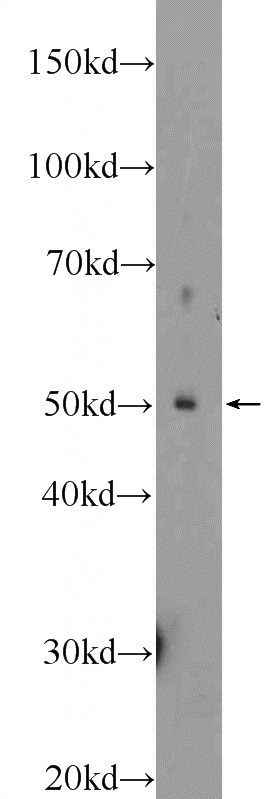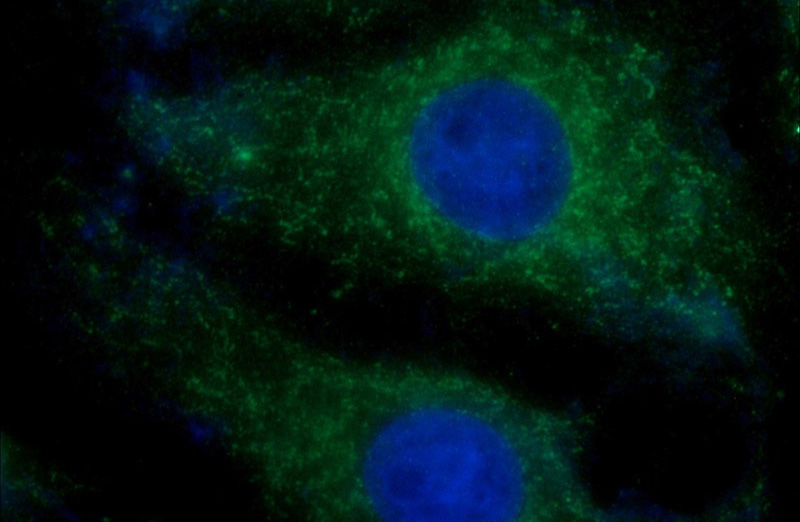-
Product Name
Parkin antibody
- Documents
-
Description
Parkin Rabbit Polyclonal antibody. Positive WB detected in mouse brain tissue, C6 cells, SH-SY5Y cells. Positive IF detected in SH-SY5Y cells. Observed molecular weight by Western-blot: 52 kDa
-
Tested applications
ELISA, WB, IF
-
Species reactivity
Human,Mouse,Rat; other species not tested.
-
Alternative names
AR JP antibody; LPRS2 antibody; PARK2 antibody; Parkinson disease protein 2 antibody; PDJ antibody; PRKN antibody
-
Isotype
Rabbit IgG
-
Preparation
This antibody was obtained by immunization of Parkin recombinant protein (Accession Number: BC022014). Purification method: Antigen affinity purified.
-
Clonality
Polyclonal
-
Formulation
PBS with 0.1% sodium azide and 50% glycerol pH 7.3.
-
Storage instructions
Store at -20℃. DO NOT ALIQUOT
-
Applications
Recommended Dilution:
WB: 1:200-1:1000
IF: 1:20-1:200
-
Validations

mouse brain tissue were subjected to SDS PAGE followed by western blot with Catalog No:113585(Parkin Antibody) at dilution of 1:300

Immunofluorescent analysis of SH-SY5Y cells using Catalog No:113585(Parkin Antibody) at dilution of 1:50 and Alexa Fluor 488-congugated AffiniPure Goat Anti-Rabbit IgG(H+L)
-
Background
Parkin, a RING-type E3 ubiquitin-protein ligase, is involved in the ubiquitination pathway and contributes to protection from neurotoxicity induced by unfolded protein stresses. Its ubiquitin–protein ligase activity promotes the degradation of a viariety of proteins including itself. Mutations in Parkin are implicated in the pathogenesis of autosomal recessive familial Parkinson’s disease. It has 6 isoforms produced by alternative splicing.
Related Products / Services
Please note: All products are "FOR RESEARCH USE ONLY AND ARE NOT INTENDED FOR DIAGNOSTIC OR THERAPEUTIC USE"
